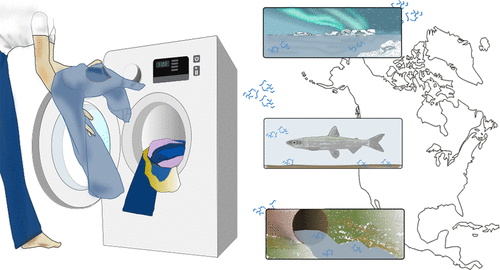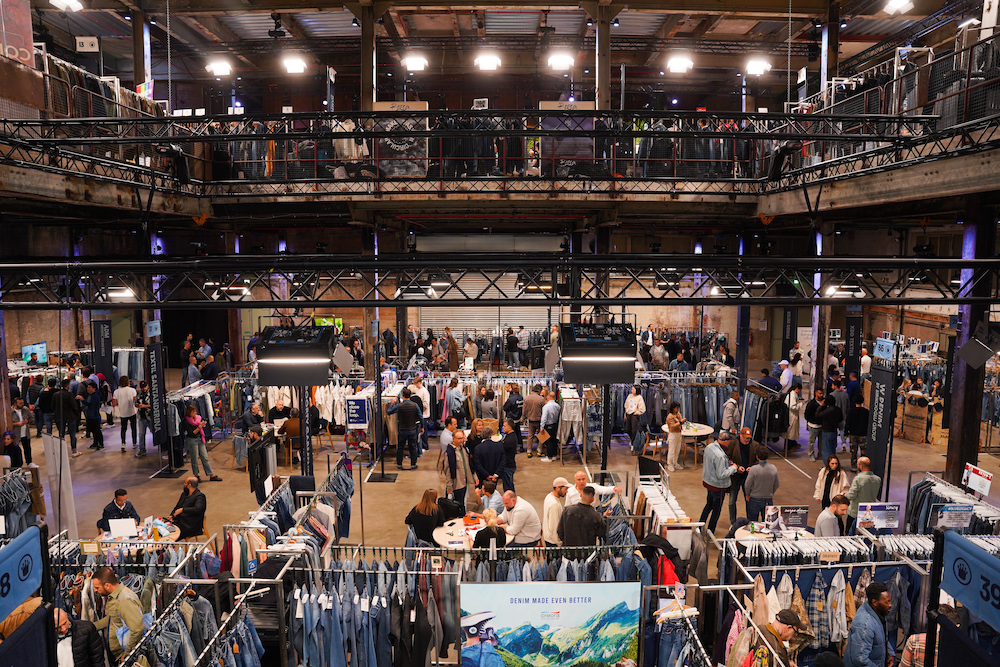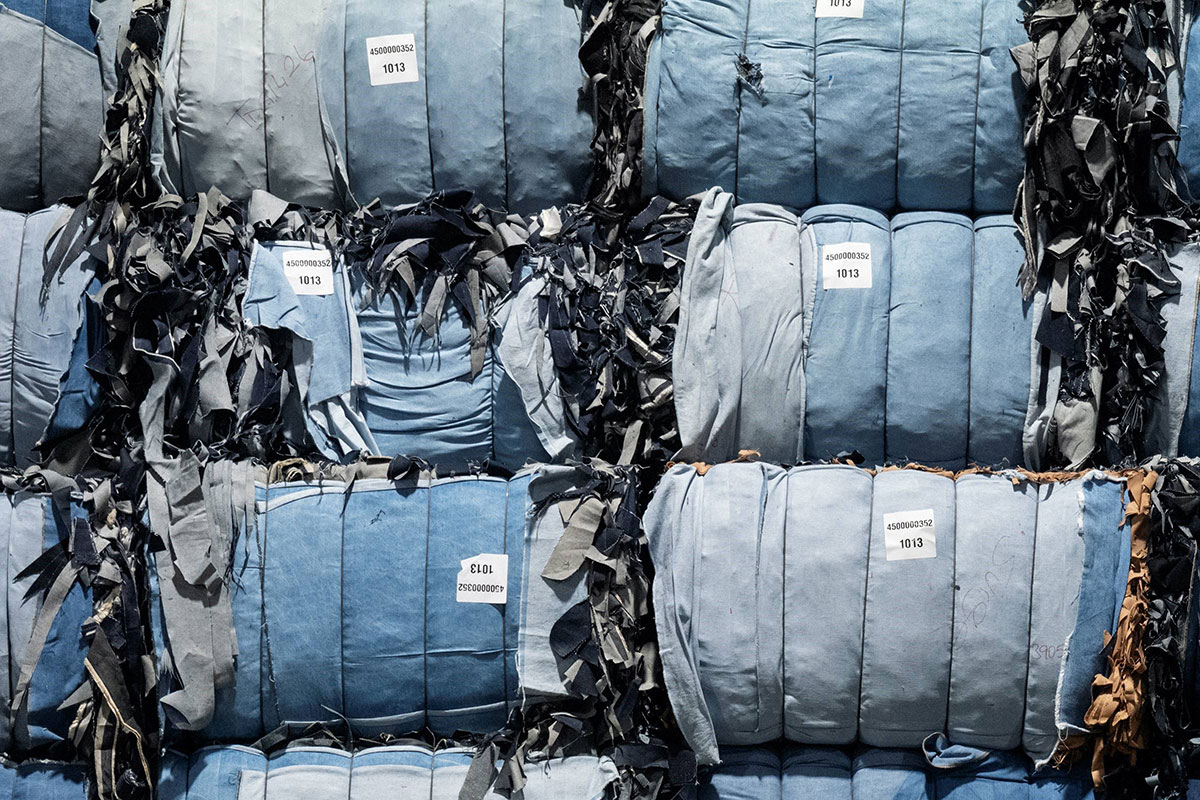ICYMI: There’s Good News and There’s Bad News

| How was your week? We shared some good news this week! It felt good. First up, we announced that we’ll be presenting Kingpins24 Canada on September 22. It’s a 2-hour livestream event in partnership with Ani Wells of Simply Suzette and it is NOT just for Canadians – there is something for everyone. We’ll be talking about future-proofing your business, circularity, new business models, denim trends and lots more. You should join. PLUS – we dropped the first bit of news about Kingpins Exchange, which will be part material marketplace and part digital denim showroom platform. You can read coverage here and watch this space for more updates next week. But enough about us. Here’s some of the denim news that caught our eye this week: |

| Bad news about denim microfibers. A study by the American Chemical Society released this week found that microfibers from jeans are much more prevalent in our oceans than previously thought – appearing even in marine sediment in the far reaches of the Arctic. Microfibers have been part of the larger conversation surrounding clothing and its impact on the environment and wildlife – but denim has largely escaped scrutiny in this specific arena because the focus has for the most part been on synthetic fibers. Cotton was believed to be less likely to be harmful (it’s not plastic!) and more likely to degrade quickly in the environment. But it turns out that denim, which sloughs off something to the tune of 56,000 microfibers per wash, per jean, has been making an outsize contribution to the total amount of microfibers in the ocean. According to the ACS study, “indigo denim made up 23, 12 and 20% of all microfibers in sediments from the Great Lakes, shallow suburban lakes near Toronto, Canada, and the Canadian Arctic Archipelago, respectively.” The study did not offer conclusions about the effects denim microfibers specifically have on aquatic life but did say that finding “microfibers from blue jeans in the Arctic is a potent indicator of humans’ impact on the environment.” Yikes. We’ve said it before and now the scientists are saying it: a practical way to reduce denim microfiber pollution would be for consumers to wash their jeans less frequently. Read More: Your Beloved Blue Jeans Are Polluting the Ocean – Big Time Read the Study [paid content] |

| Who you calling “generic”? LA-based brand AMIRI was already suing Zara for producing jeans that are denim doppelgängers of a pair of its moto-style jeans. Now, according to TheFashionLaw.com, AMIRI has added Inditex, Zara’s parent company, to the $3M lawsuit. If fashion law is your jam, here is an interesting excerpt from the article: As for the strength of AMIRI’s trade dress claims, we noted in connection with the initial complaint that while the MX2 pants have certainly been the subject of a fair share of unsolicited (i.e., not directly paid-for) media attention thanks to their adoption by celebrities, such Odell Beckham, Jr., Future, Tyga, and Kris Wu, which bodes well from a secondary meaning perspective, it will be interesting to see whether AMIRI will actually be able to convince the court that consumers link the trade dress at issue to a single source. In making a claim for trade dress infringement, AMIRI has the burden of establishing that the design at issue has acquired “secondary meaning” in the eyes of the public – or that consumers recognize the design as being associated with a single company. (Once it establishes that it has a valid trade dress, assuming that it can do so, infringement liability on behalf of Zara and Inditex will depend on whether there is a likelihood of confusion.) In its response to AMIRI’s initial complaint, Zara denied the brand’s claims, asserting, among other things, that the brand does not have “any protectable trade dress rights [in the jeans design]” because the design is “functional, generic, ornamental, and/or not distinctive.” Ouch 😣 Read More: After Zara Calls its Jeans “Generic,” AMIRI Adds Inditex as a Defendant in its Trade Dress Suit |

| Do you B Corp? Vogue Business is reporting that “Covid-19 is pushing the fashion industry to consider B Corp status, a little-publicised sustainability certification that is growing in importance and impact amid a lack of trust in social and environmental guidelines.” It’s not easy to achieve, though. Of the more than 100,000 businesses that have signed up for the B Corp Impact Assessment since it launched in 2006, only 3,500 companies have achieved B Corp certification. It’s not surprising, though. The assessment grades companies on a points system that weighs five key areas: governance, workers, environment, customers and community. “If you don’t want to expose the weaknesses in your business, B Corp will be a negative,” says Outland Denim founder James Bartle, who certified in 2018 with 111.5 points and has since launched Maeka, sustainable production facilities in Cambodia for his denim label. “It’s a pretty painstaking process to go through for a marketing stunt.” Friend of Kingpins Saitex Denim is a certified B Corp. You can read about how and why Saitex founder Sanjeev Bahl achieved B Corp status here. Read More: Why More Brands Are Seeking Out B Corp Certifications |

Also, special things happen when indigo-obsessed millennials start knitting themselves jeans. Check out LA-based denim knitwear brand Knorts for some WFH knit jeans or an indigo lamp or a whole new outfit for your bed/office (pictured).


